Premium Only Content
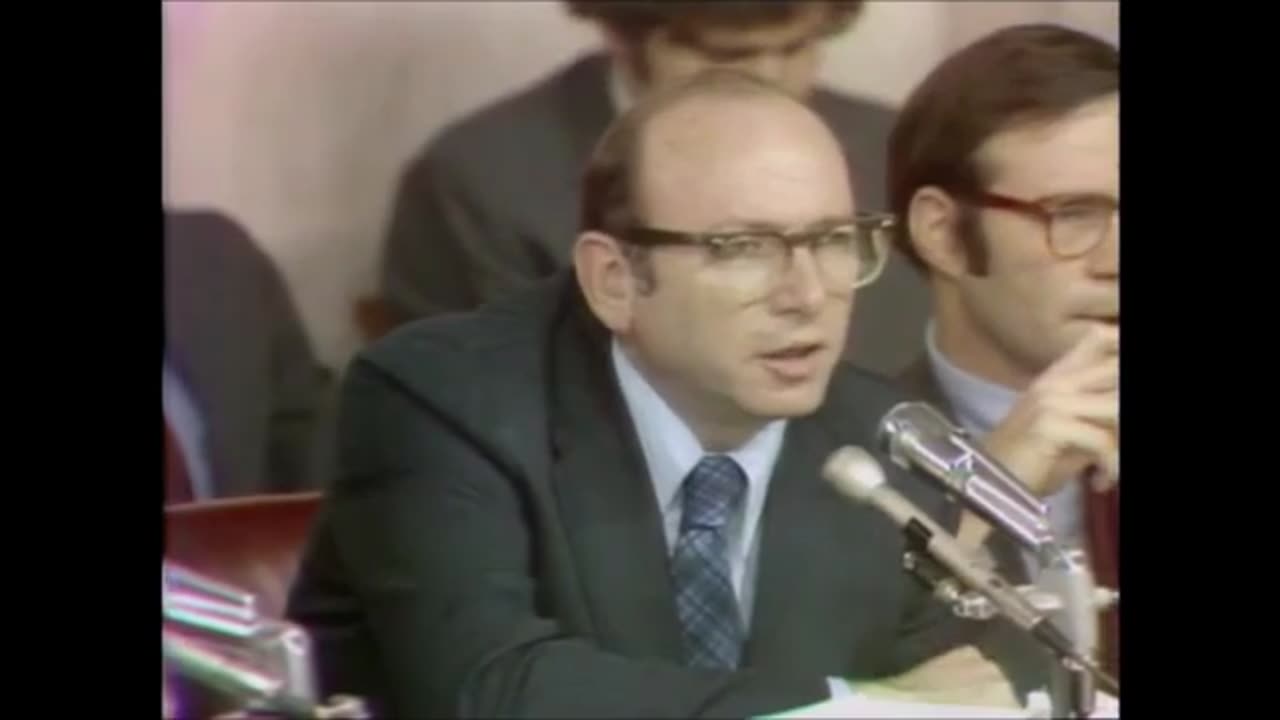
Watergate Hearings Day 4: John J. Caulfield and Gerald Alch (1973-05-23)
The dark side of history: https://thememoryhole.substack.com/
The White House Plumbers, sometimes simply called the Plumbers, the Room 16 Project, or more officially, the White House Special Investigations Unit, was a covert White House Special Investigations Unit, established within a week of the publication of the Pentagon Papers in June 1971, during the presidency of Richard Nixon.[1] Its task was to stop and/or respond to the leaking of classified information, such as the Pentagon Papers, to the news media. The work of the unit "tapered off" after the bungled "Ellsberg break-in" but some of its former operatives branched into illegal activities while still employed at the White House together with managers of the Committee to Re-elect the President, including the Watergate break-in and the ensuing Watergate scandal.[2] The group has been described as Nixon's "fixers".[3]
Name
On Thanksgiving, 1971, David Young arrived home from his planning at the Special Investigative Unit, when his grandmother asked him, "What do you do at the White House?", he replied, "I am helping the president stop some leaks", purposely playing off on information leak versus water leak. She exclaimed, "Oh, you're a plumber!" Young, E. Howard Hunt, and G. Gordon Liddy then put up a sign on their office with the title "The Plumbers", but it was taken down as their operations were intended to be top secret. Still, the name stuck for the group.[4]
Members
The Plumbers came to include several Watergate figures including Frank Sturgis. Hunt was recommended by Charles Colson, and Liddy was recommended by Egil Krogh. Liddy coined his own sensitivity indicator for the group in the form of "ODESSA".[5]
Some authors[who?] believe Central Intelligence Agency (CIA) officer John Paisley was a member of the Plumbers. Paisley was assigned to the CIA's Office of Security, of which Nixon campaign security coordinator and Watergate burglar James McCord was once a member. On August 9, 1971, Young's memo indicates he met with Paisley and OS Director Howard Osborn, in which Paisley provided a list of objectives for the Special Investigations Unit.[6]
Operations
The Plumbers' first task was the burglary of the office of Daniel Ellsberg's Los Angeles psychiatrist, Lewis J. Fielding, in an effort to uncover evidence to discredit Ellsberg, who had leaked the Pentagon Papers. The operation was reportedly unsuccessful in finding Ellsberg's file and was thus reported to the White House. However, Fielding himself stated the file was in his office; he found it on the floor on the morning after the burglary and quite clearly, someone had gone through it.[7] In a September 1971 conversation, John Ehrlichman advised Nixon, "We had one little operation; it's been aborted out in Los Angeles which, I think, is better that you don't know about."[8] Eventually, the case against Ellsberg was dismissed due to government misconduct.[9]
Aside from the Fielding burglary, there are few other activities the Plumbers were known to have been engaged in. Hunt reportedly looked into the Ted Kennedy-Chappaquiddick incident; and Liddy reported the alleged involvement of the Kennedy administration in the assassination of South Vietnamese president Ngo Dinh Diem.[5]
After the California break-in, Liddy—who was general counsel, a member of the finance committee of the Committee to Re-elect the President (CRP) and promoted from aide to Krogh and Young—worked with Campaign political-intelligence operations. Ehrlichman, the Assistant to the President for Domestic Affairs and Special Investigations Unit, knew about Liddy's goal to perform an intelligence-gathering operation for the CRP. Liddy involved Hunt in the operations which would later include the Watergate burglary.[10]
Notes
"The Plumbers". The New York Times. July 22, 1973. Retrieved October 12, 2022.
"II. The Plumbers". The Atlantic. Retrieved September 17, 2013. "In the early evening of June 17, 1971, Henry Kissinger held forth in the Oval Office, telling his President, and John Ehrlichman and Bob Haldeman, all about Daniel Ellsberg. Kissinger's comments were recorded, of course, on the hidden White House taping system, and four years later, a portion of that tape was listened to by the Watergate Special Prosecution Force, which was then investigating the internal White House police unit known as the Plumbers."
Garment, Suzanne (April 13, 2018). "Cohen Makes Nixon's Fixers Look Like Amateurs". Real Clear Politics. Retrieved December 14, 2018.
Dean, John W. The Nixon Defense, p. 663n. Penguin Group, 2014. ISBN 978-0-670-02536-7.
Liddy. Will, pp. 147–149.
Jim Hougan. Secret Agenda, pp. 38–40.
Jim Hougan. Secret Agenda, p. 47.
Abuse Of Power, by Stanley Kutler, (Free Press 1997) Simon and Schuster 1999, page 28. Retrieved January 14, 2021.
Network, The Learning (2012-05-11). "May 11, 1973 | Charges Dropped Against Pentagon Papers Leakers". The Learning Network. Retrieved 2022-05-14.
Dean, John W. (2014). The Nixon Defense, p. 13. Penguin Group. ISBN 978-0-670-02536-7.
References
Hougan, Jim (1984). Secret Agenda. Random House. ISBN 0-394-51428-9.
Liddy, G. Gordon (1980). Will. St. Martin's Press. ISBN 0-312-88014-6.
External links
The Watergate Files presented by The Gerald R. Ford Museum & Library
G. Gordon Liddy deposition in Maureen K. Dean and John W. Dean v. St. Martin's Press et al., United States District Court for the District of Columbia. Case No. 92 1807 (HHG), December 6, 1996.[dead link]
vte
Richard Nixon
37th President of the United States (1969–1974) 36th Vice President of the United States (1953–1961) U.S. Senator from California (1950–1953) U.S. Representative for CA–12 (1947–1950)
Pre-presidency
Checkers speech Vice presidency
Presidential transition of Dwight D. Eisenhower 1958 motorcade attack Kitchen Debate Operation 40 Presidential transition of John F. Kennedy
Presidency
(timeline)
Transition First inauguration Second inauguration "Bring Us Together" Silent majority 1970 Lincoln Memorial visit State of the Union Address (1970 1973 1974) Wilson desk Judicial appointments
Supreme Court controversies Executive Orders Presidential Proclamations
Foreign policy
Nixon Doctrine Vietnam War
Cambodian bombing Paris Peace Accords "Peace with Honor" Vietnamization Cold War period
Linkage policy Tar Baby Option 1972 visit to China
Shanghai Communiqué 1973 Chilean coup d'état Détente
1972 Moscow Summit Anti-Ballistic Missile Treaty SALT I Treaty Prevention of Nuclear War Agreement Threshold Test Ban Treaty Operation CHAOS Space exploration
Economic policy
Bank Secrecy Act Fair Credit Reporting Act National Highway Traffic Safety Administration Urban Mass Transportation Act of 1970 Federal-Aid Highway Act of 1973 Nixon shock
Economic Stabilization Act of 1970 Smithsonian Agreement Occupational Safety and Health Act
National Institute for Occupational Safety and Health Occupational Safety and Health Administration Permissible exposure limit U.S. Consumer Product Safety Commission
Consumer Product Safety Act Lead-Based Paint Poisoning Prevention Act Poison Prevention Packaging Act of 1970 Public Health Cigarette Smoking Act Securities Investor Protection Act
Securities Investor Protection Corporation Tax Reform Act of 1969
Alternative minimum tax Revenue Act of 1971 Agricultural Act of 1970 Farm Credit Act of 1971 Consolidated Farm and Rural Development Act of 1972 Agriculture and Consumer Protection Act of 1973 Emergency Petroleum Allocation Act Emergency Daylight Saving Time Energy Conservation Act Trans-Alaska Pipeline Authorization Act
Environmental
policy
Council on Environmental Quality
Environmental Quality Improvement Act National Environmental Policy Act Environmental Protection Agency
Clean Air Amendments of 1970 Clean Water Act Federal Insecticide, Fungicide, and Rodenticide Act National Ambient Air Quality Standards National Emissions Standards for Hazardous Air Pollutants New Source Performance Standards Noise Control Act Reorganization Plan No. 3 of 1970 National Oceanic and Atmospheric Administration Coastal Zone Management Act
Coastal Zone Management Program Great Lakes Water Quality Agreement Marine Protection, Research, and Sanctuaries Act of 1972 Endangered Species Act of 1969 Endangered Species Act of 1973 Oil Pollution Act of 1973 Water Resources Development Act of 1974
Social policy
Family Assistance Plan Revised Philadelphia Plan Minority Business Development Agency Native American policy
Alaska Native Claims Settlement Act Education Amendments of 1972
Title IX National Cancer Act of 1971 End Stage Renal Disease Program Health Maintenance Organization Act of 1973 Drug Abuse Prevention and Control Act Shafer Commission War on Drugs
Drug Enforcement Administration Cannabis policy Federal Contested Elections Act Federal Election Campaign Act Voting Rights Act Amendments of 1970 District of Columbia Home Rule Act
Watergate
Timeline
Operation Sandwedge Operation Gemstone Saturday Night Massacre CRP White House Plumbers Watergate Seven Enemies List
list of opponents White House tapes United States v. Nixon (1974) Senate Watergate Committee
impeachment process "I am not a crook" Resignation
speech Pardon
Life and
politics
Richard Nixon Foundation Presidential Library and Museum Birthplace and boyhood home "Last press conference" Florida White House "La Casa Pacifica" Nixon Center Nixon v. General Services Administration (1977) Nixon v. Fitzgerald (1982) Death and state funeral
Books
Six Crises (1962) Bibliography
Elections
U.S. House of Representatives: 1946 1948 U.S. Senate: 1950 California gubernatorial election: 1962 GOP presidential primaries: 1960 1964 1968 1972 GOP national conventions: 1952 1956 1960 1968
campaign 1972 Presidential elections: 1952 1956 1960
debates 1968 1972
Popular
culture
"Nixon goes to China" Millhouse (1971 film) An Evening with Richard Nixon (1972 play) Richard (1972 film) Another Nice Mess (1972 film) Four More Years (1972 film) Impeach the President (1973 song) The Werewolf of Washington (1973 film) White House Madness (1975 film) All the President's Men (1976 film) The Public Burning (1977 novel) Washington: Behind Closed Doors (1977 miniseries) Secret Honor (1984 film) Nixon in China (1987 opera) The Final Days (1989 film) Nixon (1995 film) Elvis Meets Nixon (1997 film) Futurama (1999 TV series) Dick (1999 film) Nixon's China Game (2000 film) Dark Side of the Moon (2002 film) The Assassination of Richard Nixon (2004 film) Frost–Nixon interviews (2006 play, 2008 film) Black Dynamite (2009 film) "The Impossible Astronaut" (2011 TV episode) Our Nixon (2013 film) X-Men: Days of Future Past (2014 film) Crooked (2015 novel) Elvis & Nixon (2016 film) The Post (2017 film) Watergate (2019 board game) U.S. postage stamp
Related
Presidential Recordings and Materials Preservation Act Presidential Townhouse Richard Nixon mask
Staff
Jack Brennan (aide de camp) Murray Chotiner (early campaign manager) Manolo Sanchez (valet) Rose Mary Woods (secretary)
Family
Thelma "Pat" Ryan Nixon (wife) Tricia Nixon Cox (daughter) Julie Nixon Eisenhower (daughter) Christopher Nixon Cox (grandson) Jennie Eisenhower (granddaughter) Francis A. Nixon (father) Hannah Milhous Nixon (mother) Donald Nixon (brother) Edward Nixon (brother)
← Lyndon B. Johnson Gerald Ford →
← Alben W. Barkley Lyndon B. Johnson →
Louis James Russell (December 16, 1911 – July 2, 1973) was an American special agent and investigator for the Federal Bureau of Investigation, the House Un-American Activities Committee, and a private detective agency involved in the Watergate scandal.[1][2]
Career
Federal Bureau of Investigation
Russell graduated from the Catholic University of America, and joined the Federal Bureau of Investigation on June 7, 1937, as a special agent.[1] Author Jim Hougan characterized Russell as an alcoholic and womanizer,[2] and his resignation was requested in 1944, after misuse of an official automobile.
Anti-communism
Alger Hiss, whom Russell restrained from striking Whittaker Chambers in 1948
In 1945, Russell joined the House Un-American Activities Committee (HUAC) as an investigator. Robert E. Stripling has Russell testify on what he knew about Gerhart Eisler and Hollywood industry people.[3] He also testified about Leon Josephson[4] and Alexander Koral.[5]
By 1948, Russell was a HUAC senior investigator in the Alger Hiss–Whittaker Chambers case. In his memoir Six Crises, Richard Nixon recalled that Russell restrained Hiss when it seemed Hiss was about to strike Chambers.[6] Russell served under Robert E. Stripling and his successor Frank S. Tavenner Jr.[3] Investigators who reported to him included Courtney E. Owens and Donald T. Appell.[7]
He helped uncover evidence of Soviet spy rings and leaks of atomic secrets and materials to the Soviet Union. In 1952, he helped try to find Communist influence in the motion picture industry.[1][8][9] In January 1954, Russell was dismissed by committee chair, Representative Harold H. Velde. Russell had borrowed $300 from actor Edward G. Robinson. In 1956, Russell was rehired and remained with HUAC for a decade.[1]
Private investigator
In 1966, Russell became a private investigator.[1] To undermine the credibility of investigative report Jack Anderson, the Richard M. Nixon campaign hired Russell "to spy" on him. In return for leads, Anderson gave Russell odd jobs for the "Washington Merry-Go-Round," enabling Russell to send information back to the campaign, whose director of security was James W. McCord[10]
Watergate scandal
Russell was involved in the Watergate scandal
In 1971, Russell was working for General Security Services a security guard service whose clients included the Watergate offices. After the Watergate break-in in 1972, James W. McCord Jr. "refused to discuss Russell under any circumstances and ... would not discuss Watergate with any writer who so much as expressed interest in Lou Russell."[2] From June 20 to July 2, 1973, Russell was working for a detective agency that was helping George Herbert Walker Bush—then chairman of the Republican National Committee—prepare for a press conference.
According to attorney Gerald Alch, McCord hired "an old associate of his" [Russell] to his company Security International, Inc. Bob Smith, aide and office manager to attorney Bernard Fensterwald recounted that McCord had obtained a contract to provide security to the Republican National Committee. Unable to cash McCord's checks, Russell brought some dozen checks over time to Fensterwald's office at the "Committee to Investigate Assassinations",[11] which Fensterwald would cash. During the Watergate break-in, Russell was checked into a Howard Johnson's Motel across from Watergate.[12]
Russell died of a massive heart attack on July 2, 1973, at his daughter's home in Calvert County, Maryland.[1]
See also
Jacob Spolansky
Alvin Williams Stokes
References
"Louis J. Russell Is Dead at 61; Investigator for Hiss Trial". The New York Times. July 3, 1973. Retrieved May 4, 2019.
Hougan, J. (1984). Secret Agenda: Watergate, Deep Throat, and the CIA. New York: Random House. pp. xvi, 82, 185.
Meeks, Jack D. (2009). "From the Belly of the HUAC: The Red Probes of Hollywood, 1947–1952" (PDF). University of Maryland, College Park. pp. 137 (Stripling, Tavenner), 193 (Eisler), 200, 228–229 (testimony). Retrieved May 11, 2019.
"Investigation of un-American propaganda activities in the United States. (regarding Leon Josephson and Samuel Liptzen) by the United States Congress House Committee on Un-American Activities". U.S. Government Printing Office. 1947. pp. 25–28 (Leon Josephson), 32–50 (Russell HUAC bio). Retrieved January 10, 2018.
Spargo, Mary (April 10, 1948). "Perlo, Koral Face Accuser, Say Nothing: Nervous Witnesses Stand on Rights in Refusal to Answer". The Washington Post.
Weinstein, Allen (2013). Perjury: The Hiss–Chambers Case. Random House. ISBN 9780307805669. Retrieved May 9, 2019.
"Public Hearings". Hearings Regarding Communism in the United States Government. US GPO. August 28, 1950. p. 2843. Retrieved March 24, 2021.
Meeks, Jack D. (2009). "From the Belly of the HUAC: The Red Probes of Hollywood, 1947–1952" (PDF). The New York Times. pp. 137 (years), 193 (Eisler), 228–299 (Hollywood). Retrieved May 4, 2019.
"Hearings regarding the communist infiltration of the motion picture industry". US GPO. 2009. pp. 137 (years), 193 (Eisler), 228–299 (Hollywood). Retrieved May 4, 2019.
Feldstein, Mark (2010). Poisoning the Press: Richard Nixon, Jack Anderson, and the Rise of Washington's Scandal Culture. Farrar, Straus and Giroux. p. 280.
"CTIA Newsletter Fall 1973" (PDF). Committee to Investigate Assassinations. 1973. Retrieved May 11, 2019.
Oglesby, C. (1977). The Yankee and Cowboy War. Berkeley Publishing Corporation. pp. 306–307.
External links
Louis James Russell at Spartacus Educational
1947 HUAC Testimony of Louis J. Russell (pp. 296–305, 341–342) at Internet Archive
1950 HUAC Testimony of Louis J. Russell (pp. 902–907) at Internet Archive
Guide to the Congressional Papers (1947–1950) at Nixon Library
1952 HUAC Testimony of Walter Bedell Smith at Central Intelligence Agency
Authority control databases Edit this at Wikidata
SNAC
Categories:
1911 births1973 deathsCatholic University of America alumniDetectivesFederal Bureau of Investigation agentsNixon administration personnel involved in the Watergate scandalPeople from Louisville, KentuckyPeople from Washington, D.C.Private investigatorsAmerican anti-communists
-
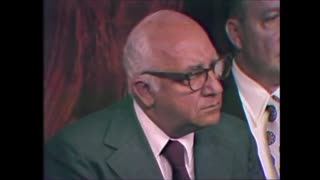 3:01:13
3:01:13
The Memory Hole
1 month agoWatergate Hearings Day 43: John R. "Fat Jack" Buckley (1973-10-09)
696 -
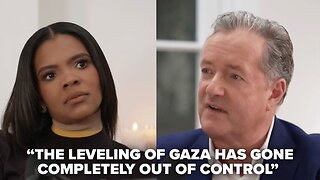 1:00:26
1:00:26
Candace Show Podcast
28 minutes agoPiers Morgan x Candace Owens | Candace Ep 123
4 -
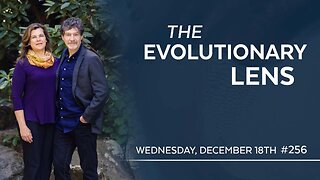 LIVE
LIVE
Darkhorse Podcast
3 hours agoThe 256th Evolutionary Lens with Bret Weinstein and Heather Heying
1,117 watching -
 LIVE
LIVE
Scammer Payback
1 hour agoCalling Scammer Live
276 watching -
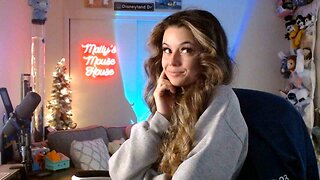 LIVE
LIVE
Mally_Mouse
4 hours agoLet's Yap About It - LIVE!
485 watching -
 5:35
5:35
Cooking with Gruel
20 hours agoMaking Fresh Salted Caramel
12.9K2 -
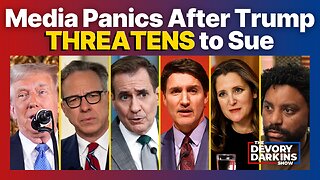 16:16
16:16
DeVory Darkins
17 hours ago $4.05 earnedMedia Panics after Trump Threatens to Sue Media for Defamation
14K52 -
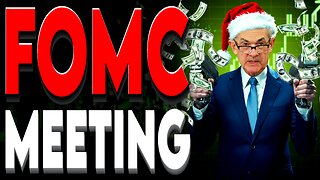 2:15:34
2:15:34
Matt Kohrs
4 hours agoFed Powell Speech & FOMC Rate Decision
9.91K2 -
 LIVE
LIVE
StoneMountain64
3 hours agoThe MOST hyped game of the YEAR
242 watching -
 1:50:12
1:50:12
The Quartering
18 hours agoTim Pool SELLS TO DAILY WIRE? Never Eat Hot Dogs Again, Drones & More
74.3K18